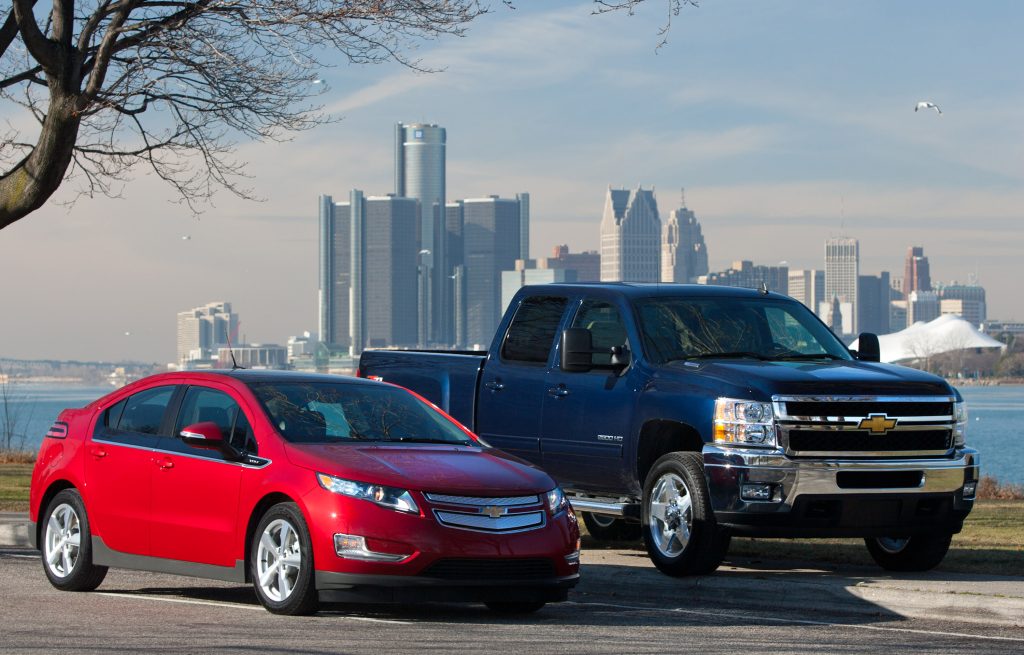
Browse our handpicked selection of vehicles that currently carry a very favorable book value in relation to where they are priced.
If you are looking for a vehicle that could help relieve some negative equity pain in your current vehicle, these selections could help get you on your way.
Maybe you just want to make a great buy and purchase a vehicle priced well under current book value. Taylor's AutoMax is here to help! Click here!
Sincerely,
Your Taylor's Auto Max Team

If you’re a young adult getting ready to start college or a parent looking to buy a vehicle for a college student, finding something that’s affordable, dependable, safe, and efficient is critical.
There’s lots to consider when evaluating cars for college students. Whether you’re a student yourself or helping your child purchase a new vehicle we’re here to help.
What Features Should Students Look for in a New Vehicle?
Price
This is the most important factor for budget-conscious car buyers, whether they buy new or used. In general, the new compact and subcompact cars with few options cost between $10,000 and $25,000 in the United States (MSRP). Midsize cars typically cost between $20,000 and $35,000, and sometimes even more. Full-size cars, including compact SUVs and crossovers, typically start at $25,000 and go up from there.
Luxury brands are more expensive overall, but entry-level luxury cars can still be found for less than $40,000. An entry-level BMW, for example, won’t set you back much more than $30,000, and new Acura compacts won’t set you back much more than $20,000.

Remember that as new cars become more sophisticated – and thus more expensive – these ranges may change. Used vehicle prices vary greatly as well, ranging from 80 per cent to 100 per cent of new vehicle MSRP to as little as 10% to 20% of MSRP.
Make, model, age, condition, accident history, and whether the vehicle is purchased from a dealership or a private seller are all factors that influence used vehicle prices.
Financing Options
Even after negotiating, many college students do not have enough money to pay the full sticker price of a new car. Those with substantial savings – or with willing parents – may be able to afford the down payment on a new car or a significant portion of the cost of a used car.

All else being equal, it’s best to put down as much as you can afford, because interest charges on car loans can add significantly to your total lifetime cost of ownership. Make certain you understand how to negotiate an auto loan.
MyAutoloan.com is a good place to start if you’re looking for an auto loan. Rates begin at less than 3%, and lease terms can be as short as 36 months or as long as 84 months.
Vehicle Size
If you go to an urban college or university where street parking is scarce and lot or garage parking is frequently scarce, you probably don’t need a pickup truck or full-size SUV; a compact sedan or hatchback will suffice.

A larger, heavier vehicle, on the other hand, is probably more appropriate if you go to school in a small town or rural area and frequently drive in the snow, go off-road, or haul and tow stuff. Larger vehicles are generally more expensive, but used trucks and SUVs can be found at a discount.
Fuel Efficiency
Since the price of gas is always fluctuating, it is always recommended to look at the vehicle’s EPA mileage ratings. The average MPG for a vehicle right now is around 25 MPG combined.

If you can afford it, hybrid and all-electric options are becoming more efficient and may come with federal and state tax incentives. Most popular models have a hybrid option as well and they greatly increase the fuel efficiency.
Safety Features and Rating
For any car buyer, safety is a top priority. Many new cars, particularly those at the higher end of the market, include potentially lifesaving safety features like emergency braking and lane drift warning systems.

Crash testing and rating is administered by the NHTSA (National Highway Traffic Safety Administration) and the IIHS (Insurance Institute for Highway Safety). The NHS gives out ratings of up to five stars, while the highest rating for IIHS is Good in six different crash tests.
Every year, new safety features become available in higher-end vehicles, which eventually trickle down to more affordable vehicles. If having the best safety features money can buy is important to you, you should probably buy new and expect to pay a premium.
Optional Extras and Features
Every vehicle model comes with a slew of optional add-ons that can significantly increase the overall cost. If cost is your primary concern, resist the urge to add frills.

Optional features such as heated seats and backup cameras, on the other hand, improve safety and comfort. Models with a lot of fancy features in the base version are more likely to be more expensive to begin with.
Insurance Costs
The cost of car insurance varies depending on factors such as the value of your vehicle, your driving record, your home address and state laws, and the safety and security features of your vehicle.

Fortunately, the car insurance industry is highly competitive, so it’s simple to shop around for affordable rates online. Make certain you understand how to save money on insurance.
Comparing multiple offers from companies such as Liberty Mutual or Esurance can help you save a lot of money every year.
Warranty
Most manufacturers offer a 36-month or 36,000-mile limited warranty coverage (which covers all components other than normal wear and maintenance items). The powertrain coverage is usually for 60 months or 60,000 miles.

Hyundai still offers one of the best new car warranty programs. A limited warranty for 60 months or 60,000 miles and a powertrain warranty for 10-years or 100,000 miles.
Taxes and Fees
State by state, title fees, registration fees, annual vehicle taxes, and other ongoing levies on vehicle owners differ. When you buy a new vehicle, the dealer usually includes the title fee and the initial registration fee in the final price and handles all of the paperwork for you.

When you buy used, you are responsible for completing the paperwork and paying the applicable fees. In general, vehicle fees and taxes are proportional to the assessed value. As a result, recurring taxes tend to decrease over time and are significantly lower overall for used vehicles.
Parking Cost and Availability
This is one factor that is completely independent of the car model you choose. It can, however, influence your decision to purchase a car in the first place.

If parking is scarce or prohibitively expensive on or near campus, in your residential neighborhood, or both, consider foregoing a private vehicle in favor of carsharing or public transportation until you relocate.
Discounts for College Students
A majority of manufacturers offer current students or recent graduates discounts on new vehicles. Most offer up to $500 off or flexible financing options. These manufacturers include Buick, GMC, Chevy, Ford, Honda, Hyundai, Subaru, Toyota, and several others. Here are is a list of all the current student discounts.
| Manufacturer | Program Name | Special Offers & Discounts | Eligibility & Requirements | Expiration |
| Acura | Acura College Graduate Program | $500 off purchase/lease on 2021 or newer (excludes NSX) | Graduated in the past 2 years or next 6 months, Full-time employment or commitment | Ongoing |
| Audi | Audi College Graduate Program | Eligible for flexible terms and rates | Graduated in the past 2 years or next 6 months, Full-time employment or commitment, Monthly payment cannot exceed 25% of monthly income | Ongoing |
| BMW | BMW College Graduate Program | $1,000 off purchase/lease on new or pre-owned | Graduated in the past 2 years or next 6 months, 6 months of credit history, Debt-to-Income ratio below 45% | Ongoing |
| Chevrolet | GM College Discount | Up to $1,000 off purchase/lease on 2020 or newer | Current college student or graduated in the past 2 years | 1/3/2023 |
| Ford | Ford Drive U | $500 off lease or $750 off purchase on 2021 or newer | Current college/trade student or graduated in the past 3 years, High School Seniors | 1/3/2023 |
| Honda | Honda College Graduate Program | $500 off purchase/lease on 2020 or newer | Graduated in past 2 years or next 6 months, Full-time employment or commitment | Ongoing |
| Hyundai | Hyundai College Grad Program | $400 off purchase/lease | Graduated in the past 2 years or next 6 months, Full-time employment or commitment | 1/3/2023 |
| Infiniti | Infiniti College Graduate Program | Eligible for flexible financing options | Graduated in the past 2 years or next 6 months, Full-time employment or commitment | Ongoing |
| Lexus | Lexus College Graduate Program | $1,000 off purchase/lease | Graduated in the past 2 years or next 6 months, Full-time employment or commitment | 1/3/2023 |
| Lincoln | Lincoln College Plan | $500 off lease or $750 off purchase on 2021/2022 | Current college/trade student or graduated in the past 3 years, High School Seniors | 1/3/2023 |
| Mercedes-Benz | Rising Star College Graduate Program | Eligible for special finance offers, under $50,000 | Graduated in the past 2 years, Proof of Income | Ongoing |
| Nissan | Nissan College Grad Program | $500 off existing offers | Graduated in the past 2 years or next 6 months, Full-time employment or commitment | Ongoing |
| Subaru | Subaru College Graduate Program | Eligible for special finance and lease offers | Recent and soon-to-be graduating | Ongoing |
| Toyota | Toyota College Grad Program | $500 off purchase/lease | Graduated in the past 2 years or next 6 months, Full-time employment or commitment | Ongoing |
| Volkswagen | College Grad Bonus | $500 off purchase/lease | Graduated in the past 2 years or next 6 months, Full-time employment or commitment | 1/3/2023 |
| Volvo | Volvo Graduate Program | Eligible for flexible financing options | Recent graduates with full-time job | Ongoing |
To receive a graduate discount, you’ll need to bring a few things with you to the dealership, including:
- A valid driver’s license
- Proof of insurance, and insurance agent contact information
- Copy of your degree or transcript, and contact information for your school
- Proof of income or full-time employment, and contact information for your payroll or HR department
- Proof of commitment to full-time employment (if you’re not currently working full-time)
- A few dealerships may ask for personal references
- The GM College Discount requires an authorization code before purchase, which can be obtained through their site.
Taylor’s Auto Max Buick, GMC, Nissan offers a discount to local graduating seniors, which can be found in the pages of their yearbook.
So is it Better for a Student to Lease or Purchase?
Leasing a car does result in lower monthly car payments. But for most college students and car buyers, it makes more financial sense to buy a car outright than to lease. In the long-term, leasing a car will be more expensive than buying. However, you should always explore your options and find the solution that best fits your situation.








